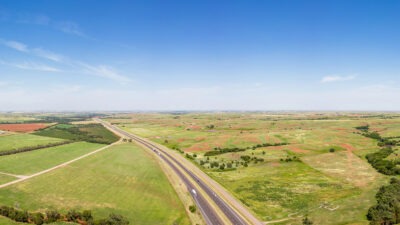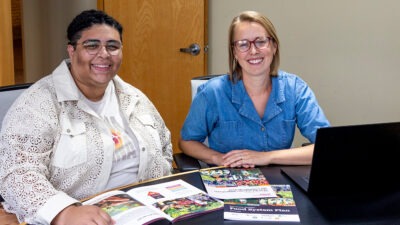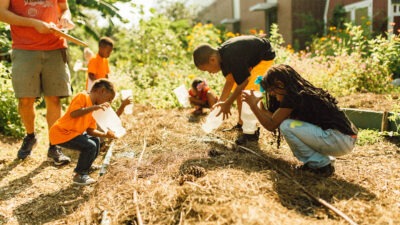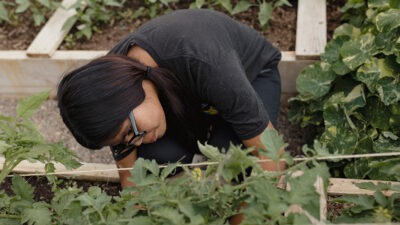Harvest season brings thoughts of farmstands brimming with apples and greens, and school gardens springing to life. Across the country, nonprofit organizations are using farming, markets and food education to close fresh produce gaps and provide economic stability for children, families and communities.
Sankofa Community Development Corporation: Cultivating health in the Lower Ninth Ward
In New Orleans’ Lower Ninth Ward, Sankofa Community Development Corporation transforms communities through connection and science. Sankofa began its food access work in 2008 as a community marketplace and farmers market, which evolved into an open-air produce stand in 2017. The Fresh Start Market opened its doors in 2024 as a permanent, 1,600-square-foot green grocery that provides year-round access to fresh, affordable produce in underserved neighborhoods of New Orleans East while sourcing from regional farmers. By filling a retail gap left by grocery store closures, Sankofa offers a trusted, community-led alternative that supports both local agriculture and neighborhood health. The market also serves as a space where families reconnect and strengthen community ties that help children flourish.

Grow Dat Youth Farm: Growing leaders alongside vegetables
At Grow Dat Youth Farm, young people in New Orleans learn more than how to plant seeds — they learn leadership. Each year, the farm distributes over 50,000 pounds of produce while promoting food access and sustainability. Grow Dat is not only addressing food access in New Orleans; it is developing young people as caretakers of community well-being and food sovereignty.
10 Cents a Meal with local partners: Connecting farms and classrooms in Michigan
In Michigan, the 10 Cents a Meal for Michigan’s Kids & Farms program helps schools purchase locally grown fruits and vegetables for students. Supported by partners like the Groundwork Center for Resilient Communities, the initiative connects farmers with early childhood centers and schools to ensure every student has access to nutritious meals, regardless of where they live. By linking farms to school cafeterias, the program teaches children where food comes from and inspires lifelong healthy habits.
Hmong American Farmers Association: Land, livelihood and learning in Minnesota
In Minnesota, the Hmong American Farmers Association (HAFA) preserves agricultural traditions while promoting economic opportunity. HAFA supports Hmong families through access to farmland, financing and training in sustainable farming. On its 21-family farm, members grow more than 160 types of crops that are sold to schools, daycare centers and farmers markets across the Minneapolis–St. Paul region. Hmong farmers have revitalized local farmers markets, creating new opportunities for families to access fresh food while celebrating cultural heritage, land stewardship and resilience. For children, the farm is both classroom and community, showing how food connects identity and opportunity.
Feeding futures through farming
From Louisiana to Michigan to Minnesota, these organizations share a belief that access to fresh, local food is a cornerstone of thriving communities. Their work strengthens food systems so growers, families and children all benefit. As harvest season continues, these efforts remind us that when we invest in community-led agriculture, we create pathways for healthy food, stable livelihoods and a future where every child can grow strong.






Comments